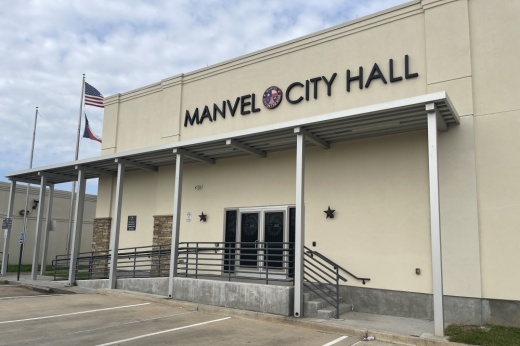What readers need to know
The vote was 3-4, with council members Crystal Sarmiento, David Lands, Keith Bonner and Mayor Dan Davis voting against the measure on Nov. 18.
Those opposed voiced concerns about several unknowns tied to the 6.3% water rate increase that was being proposed. Questions about justifying the rate to residents paired with worries about other funds, such as impact fees, caused some members to opt against moving forward with the new rates.
According to city documents, the rates in question included:
- Residential water base up from $32.59 to $34.65
- Residential wastewater base from $39.11 to $41.58
- Commercial water base from $39.11 to $41.48
- Commercial wastewater from $45.63 to $48.51
- Additional volume for each type of water from $3.34 to $3.79
Had the changes been approved, officials estimated on Nov. 4 it would have added $136,000 in total to the city’s budget and increased customer bills by around $10 a month.
The vote came after the item was tabled at City Council’s Nov. 4 meeting. Prior to that, in October, Council gave the first of two approvals needed to move the item forward.
Why it matters
Manvel has seen its utility fund lag behind in recent fiscal years, which has caused the city to have to make up the difference using general fund revenue, City Manager Dan Johnson said at the meeting.
As a result, the city has approved sharp increases to its water rate fund by 13.4% and 14.9% in each of the past two years, respectively, officials said.
Even without the the 6.3% increase, the fund is self-sufficient thanks to increases in previous years, meaning the general fund is no longer need to support it. However, the increase would still not have been enough for the city to meet its obligation for the bond payment tied to the city’s $40 million water reclamation facility project, which council approved in May.
In total, the city’s utility fund is expected to pay off $300,000 of the bond payment each year, with the rest of the annual note covered by the city’s impact fees and the Manvel Economic Development Corporation.
However, this year the utility fund would be short $269,000, prompting the city to make up the difference using impact fees.
If the 6.3% rate increase had been approved, the total contribution from the utility fund would have been $56,000—still short by $244,000—officials said at the meeting.
In order for the utility fund to be able to meet the total obligation, a 19% increase to the water rates would have been needed, Finance Director Rosa Donaire said at the meeting. This would have increased the average residents’ water bill by $19 a month.
Quote of note
Given the pull between impact fees and the utility fund, Davis said at the meeting he didn’t feel like he could justify to residents approving a 6.3% rate. He said his view was that it didn’t fix the problem the city was facing. He felt the city either needed to approve the higher 19% rate increase or commit to using impact fees going forward to pay off the difference.
The 6.3% rate increase, he said, was trying to “straddle the line.”
Davis on Nov. 19 told Community Impact he voted no because he didn’t feel the rate increase struck the right balance between keeping Manvel affordable while also helping pay for the city’s improvements.
“While I understand the need to address rising costs and invest in infrastructure, I also believe it’s important to keep Manvel affordable for our residents,” Davis said.
What else?
Donaire said at the meeting if the rate increase did not pass, the city would have to continue taking money from impact fees, which could take away money for future projects.
No projects being worked on currently would be affected, she said, and it wasn’t clear which future projects could be affected.
What’s next?
Davis said Nov. 19 the item could appear on a future agenda to increase the rate to a percentage that would cover the costs needed.
Johnson said at the meeting there was nothing preventing the city from raising rates again in the middle of the year. But with the rate set to stay the same for the time being, Davis said Nov. 19 the city will have to find ways to cut costs to avoid overspending.
“Over the next few weeks, we will review the data and determine the best way to ensure that any rate changes are truly necessary and fair,” Davis said Nov. 19.
Editor's note: This story was corrected to reflect that the utility fund is currently self-sufficient without the rate increase.





